Andrea's Adventures - OVERTRAINING. Recognising the red flags and Leaving the Ego at the Door8/17/2023
Training is good for you, right? So it makes sense that more training and harder training is even better, yeah? Well, it’s not that simple. In fact, too much of the wrong type of training can be counterproductive. There has to be a balance and when that balance is out of whack, bad things can happen. Training can be as much a psychological game as it is a physical one. There are the mind games we play with ourselves. I've done some soul searching on this given my recent experience with overtraining. I'm no psych but I believe, for me, it comes down to growing up in a time where coaches believed in huge loads of intense quantity rather than balanced quality. If you have a tendency to overtrain, maybe it could be due to this too. Or maybe you had parents who pushed and pushed (I didn't, but I've certainly seen enough of them in my lifetime!). When I was in the thick of overtraining syndrome, Rowan suggested I write down my thoughts and experiences, from how I came to be here, how it feels, and the path to recovery. I’ve written this blog from personal experience in the hope that by sharing my journey, you won’t ignore the red flags like I did. And in the hope that you might recognise some of those flags when they first start waving in your face. We're Always Learning!I am slowly coming out the other side of what can happen when you let your ego get in the way of your health. Or maybe it’s not even ego, it’s just that you want to see results fast! Or a combo of both. Having said this, if ego equals self-belief, there is absolutely (and should be) a place for that in your training. What I'm referring to is ego for the sake of kudos. Yes, I am a coach, and yes, I know the importance of moderating training intensity, fuelling adequately and incorporating recovery into any training program. To be clear, as a coach with Summit Strength, I create individualised, sensible, appropriately paced and appropriately progressed programs for my clients. Clients who follow any of the programs created by me, Rowan or Lee will always be gradually progressed - overtraining is not a risk when you follow what your coach sets out for you. However, when it comes to my own training, sometimes I don't heed my own advice! When I don't have a coach (yes, coaches can have coaches too) and I go it alone, I can go rogue! Sound familiar? Like many of us, I am prone to getting caught up in the ‘high’ that can come with a hard training session. It can be addictive! It can feel sooooo good to tick off another tough workout………until that one day when it doesn't feel so good. Followed by another day. Then a week. The next thing you know, you’ve strung together a month of training where every workout is a slog and your previous ‘high’ is a distant memory. And you wonder if you’ll ever actually feel good again. And you're seriously thinking about throwing in the towel. If you think you’re heading down this path, please read on! It Doesn't Only Happen to Elite Athletes!To be clear, you do not need to be an elite athlete to end up with overtraining syndrome (there is a downhill progression in reaching the point of overtraining - overreaching is your first stage - ignore this at your peril!) In fact, most elite athletes have a strong support team surrounding them such as coaches, sports physicians, psychologists, physios etc. They adhere to very strict guidelines around how they train using the plethora of medical and diagnostic info at hand to know how their bodies are tracking at any given time. As recreational athletes, most of us don’t have the luxury of those things so we need to fall back on those old tried and true methods of listening to our bodies. And our coaches. And sometimes our Garmins - although be aware that whilst smart watches are an awesome training tool, they aren’t always accurate and should really only be used as a guide. Turns out, my Garmin was on the money. Here’s my story. It’s not unusual. It could be your story too. How Do We Get Into This Mess?Along with hiking, I love open water swimming. I’ve participated in loads of events over the last two summers and decided that by next summer, I wanted my pace to have come down considerably. So rather than do my usual solo laps at the pool, I joined a triathlon club so that I could get pushed harder in the pool than I would by swimming on my own. And, hey presto! The results came pretty quickly! I pushed myself as hard as possible every session to improve my pace. I was in with the faster swimmers and feeling badass and strong! Around the same time, I had registered for a stair climbing event. I’d done it last year and wanted to go faster this year than I did back then. It takes me around 1 hour 45 mins to complete that event (the elite athletes finish in around 45 mins! I figure us slower ones are tougher because we're out there much longer hehe!) And it’s tough! Up and down steep stairs at a major sports stadium. You can’t do that on a whim so 10 weeks out, I started training. Hard. So here I am, training to my max in the pool and pumping out 60 min training sessions on stairs. Oh and did I mention the two strength sessions a week and the two days of tennis lessons? Most days I’d aim to do two things, maybe strength and a stair session. Recovery? Well, that didn’t really factor into things too much. My stair climb event was coming up so I had to keep working hard there. I KNEW I had to have recovery days BUT, there was no time! And here’s where the ego came in. Like a lot of us, I LOVE Garmin and Strava! Strava is a fun community where I love to see what others are doing as well as being able to look back at my own progress. We all encourage each other by commenting on each other’s activities or giving kudos. For me, it’s an important training tool. But the danger for me was that I wanted to record ‘good’ stats every time I posted my sessions. It’s a bit like only showing your awesome photos on Instagram and not the ones where you think you look crap - these things can depict a skewed reality. This Strava thing, I discovered recently, is a real thing! It's not just me! I was having a convo with my physio about it and he said he has seen many athletes fall into the ‘wanting to only post good data’ trap. In fact, he’s even had to gently suggest that some athletes consider deleting it all together for a period of time!! When he said that, I almost shuddered at the thought of doing such a drastic thing! (I’m a total data nerd). Which may suggest I actually need to think about it too! So I was finding that even on my ‘recovery’ swims where I’d go on my own, I didn’t want to record a ‘slow’ pace. I wanted it to be faster. The stair climbing sessions - anything under 45 minutes to me seemed not worth doing. The strength, I wanted to lift heavier. My ego wouldn’t let me back off and do what my body was telling me to do. Slow down! Recover! When people on Strava tell you that you’re ‘a machine’ and ‘badass’, you start to believe your own publicity and think, ‘yeah I am and I’m gonna keep pushing and pushing until I’m even better!” I'm embarrassed now, writing this with the benefit of hindsight and now being in a much better place. It makes me cringe! It's a Slippery Slope - Heed The Warning Signs!The first time I noticed something was wrong was at a swimming squad session. I’d been swimming in one of the fast lanes for weeks. I was by no means the fastest swimmer, there are some absolute guns in my club, but I was holding my own and loved how the pace of the fastest swimmers pushed me to push harder. On this particular night, I felt tired before the session. But often that tiredness dissipates once I’m in the water and the adrenaline gets going. I got in, we did the warm up and immediately, my arms felt like concrete. I could barely lift them out of the water. I was breathing harder on the warm up than I would normally. I thought it was because I’d done a strength session that morning and I’d be ok once I got going. We started our main set, a set of 400s or something. I love middle/distance freestyle so I was excited. We pushed off the wall for the first set. Not even 50 metres into it, I was done. My arms were dead. I didn’t even know if I would make 100 metres. This was embarrassing! I moved myself into the next lane which gave me the opportunity to slow down and not hold the fast swimmers up. But even that was hard. I couldn’t finish the session. I was done. The next day I could barely get out of bed. I’m a morning person and whilst I don’t leap out of bed, I do love that time of day best. This wasn’t just tiredness. This was something else altogether. It was an overwhelming fatigue throughout every fibre of my body. I have a condition called fibromyalgia - it’s in the same family as chronic fatigue - and pushing activity too hard can push me into a ‘fibro flare’ which can last a few days. I assumed it was this so I just thought I’d see how things go. I couldn’t back off my training, especially the stair climbing because the event was only weeks away! So instead of resting, I went to the stairs with a plan to do an hour on them. I lasted 20 minutes, and even that was a struggle. What the hell was going on? The days turned to weeks. My Garmin (again, whilst not 100% accurate, was truly reflecting how I felt). My training status sat at Strained for over a month. My HRV (heart rate variability - this is not the same as heart rate) was Low and kept telling me I needed to recover. But there was no time for that! I then struggled to leave my bed in the mornings, functioning through the day was almost impossible and I couldn’t wait to go back to bed around 7.30 each night. Quality sleep eluded me. I couldn’t think straight. I was gaining weight despite my intense training load (turns out it was likely BECAUSE of the intense training load). I recall standing in the shower most days, my legs feeling like they were about to give way on me. I went to the doctor and all my bloods came back fine. Despite all of this, I continued to train! This was not quality training. This was a poor attempt at trying to get my previous form back. But everything was slipping backward. I knew something was wrong - I mean, the red flags were there for over a month! I made a deal with myself. If I could get through nearly two hours of the Stadium Stomp event, I would rest after that. I also promised myself (it’s easy to break your own promises, right?) that if I felt crap during the event, I would pull out. I felt crap. I didn't pull out. Breaking Point - We All Have OneStadium Stomp Day came. I felt tired. Really tired. I started climbing the stairs. I paced myself; it was going to be a couple of hours of pain regardless. On the lower levels of the stadium where the stairs are much shallower than the super steep risers of the upper levels, I tripped over twice going up the stairs. There was no reason for this to happen apart from what I can only assume, in hindsight, was because my body was fatigued and my concentration was all over the shop; I just couldn’t focus on the job at hand. Focusing on anything over the past month was nigh on impossible. Plus I probably wasn't lifting my feet enough due to fatigue. I finished the event, a couple of minutes slower than the year before. And I was spent. A friend even commented on a photo I posted later saying that she’s seen me look tired before but this was something worse - I looked terrible! (not her words but I knew what she meant - I looked truly awful) Yes, that's me above. There is no joy at all on my face. I just wanted to lie down for a year. An Easy Fix, Right?Wouldn't it be great if we could just 'put a band aid on it' and we'd be fixed? Unfortunately, once you've reached this point, it's much more complex than that. I now know that recovery from overtraining isn't simply a matter of having a few good sleeps and backing off for a week. If you nip it in the bud early, perhaps at the overreaching stage, this might work. I knew now that it was time to take action. By taking inaction. I thought that a week or so of no physical activity would help me bounce back (boy, was I wrong). To that end, I decided to focus on rest and self-care. Now for someone who is not great at slow-paced stuff, this was a huge challenge! Do you recognise yourself with this? Do you struggle to do 'slow stuff'? But I knew I had to do something to get better. So I went to the pool purely to relax in the spa (no swimming laps). I went to the beach, purely to dip in the icy water (no swimming out to the buoys). I walked the dog slowly (I enjoyed watching him smell all the smells instead of getting impatient and wanting to walk fast). I didn’t go to tri club training (in case I was tempted to push harder). I missed the camaraderie of tri squad dearly, but I didn't trust myself to train slow. I went for a floatation tank session where I faffed around trying to relax for the first 20 mins (but once I learned to relax, it was bliss!). I learned to breathe, properly breathe. And I started introducing some YouTube gentle stretching routines and (gasp!) yoga into my mornings. Did I feel better in a week? No! I felt awful! Because, and here’s the rub, it takes more than a week for the body to bounce back when you’ve run it into the ground. For some, it can take a couple of weeks. In more extreme cases it can take months and even up to a year. That’s a scary thought for anyone who loves to be active. Did I mention the weight gain and the brain fog? Weight gain can be a sign that your body is under stress and not recovering sufficiently. It’s all to do with a hormone called cortisol and, like a lot of research, there are mixed thoughts on this. But from a personal perspective, with the level of intensity I was training at, weight gain was definitely not something I was expecting. I welcome you to do your own research in this area as I am not qualified to make claims however I do know that putting my body under extreme stress, both physically and psychologically, for an extended period of time, saw a significant increase in belly fat despite no changes in my nutrition. Oh and nutrition! I eat well as a rule. But the timing of my food intake was all wrong. More on that in my next blog. Back to the rest and self-care. I said before that I didn’t feel better in a week. And that’s the truth, as far as how I felt physically. But mentally, I was feeling improvements. Taking the time to slow down and not think of everything as being an opportunity to ‘train’ was starting to feel good. Doing stuff because it felt nice. Who’d’ve thunk it? I’ve been sticking with these things even now because I like the way they make me feel. It's not the ‘high’ that you get from a hard workout. This is something altogether different; it’s soothing. And it’s wonderful! So, what about the training? Well, my Garmin had been telling me every morning for a month when I woke up that I was in 'Strained' training mode. I needed help. I didn't know how to find my way back. I needed to talk through this with someone in the know. I was given the name of a sports doctor and went along to see him. Although my GP is awesome, I just wanted to see someone who deals primarily with athletes (elite and recreational). And this is when the magic started to happen……….. Are you seeing yourself in any of this? If any of this resonates with you, if you’re currently on this path to overreaching or worse, over-training, stay tuned for my next blog about my experience on the road to recovery. It was frustrating initially but a wondrous experience ultimately that sees me feeling awesome most days now. Yes, there is a positive to all of this! And there will be for you too! In my next blog, I'll talk about Zone 2 training, training slow to get fast., fuelling before and after activity, recovery practices, the benefits of having a coach and much more! ABOUT THE AUTHOR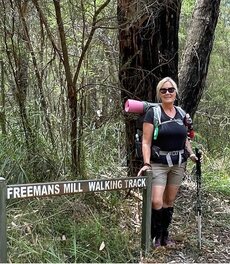 Andrea is a coach with Summit Strength, who specialise in helping hikers get strong and pain-free for their adventures. At the age of 54, she discovered a real passion for hiking. But she also discovered just how limiting physical fitness and pain can be on the trail. After signing up to one of the Summit Strength signature programs, she discovered just how much of a difference the right training can make to a hiker's enjoyment and comfort on their adventures. She knows that the journey isn't always easy and 'life' can sometimes impact on our training goals. She shares her insights and experiences with us in her blog articles. These days, as an Online Adventure Coach with Summit Strength, she helps hikers all around the world get fit, strong and resilient for their adventures. Comments are closed.
|
AuthorRowan is a personal trainer who specialises in training for hiking, trekkers and mountaineers for their bucket list adventures. Archives
July 2024
Categories
All
|
AboutSummit Strength is a personal training for hiking service created specifically to help hikers have the best chance of a safe, enjoyable and successful adventure.
|
Company |
Services |
|
|
© COPYRIGHT 2018. ALL RIGHTS RESERVED.
|
Website Design by My Personal Trainer Website
|


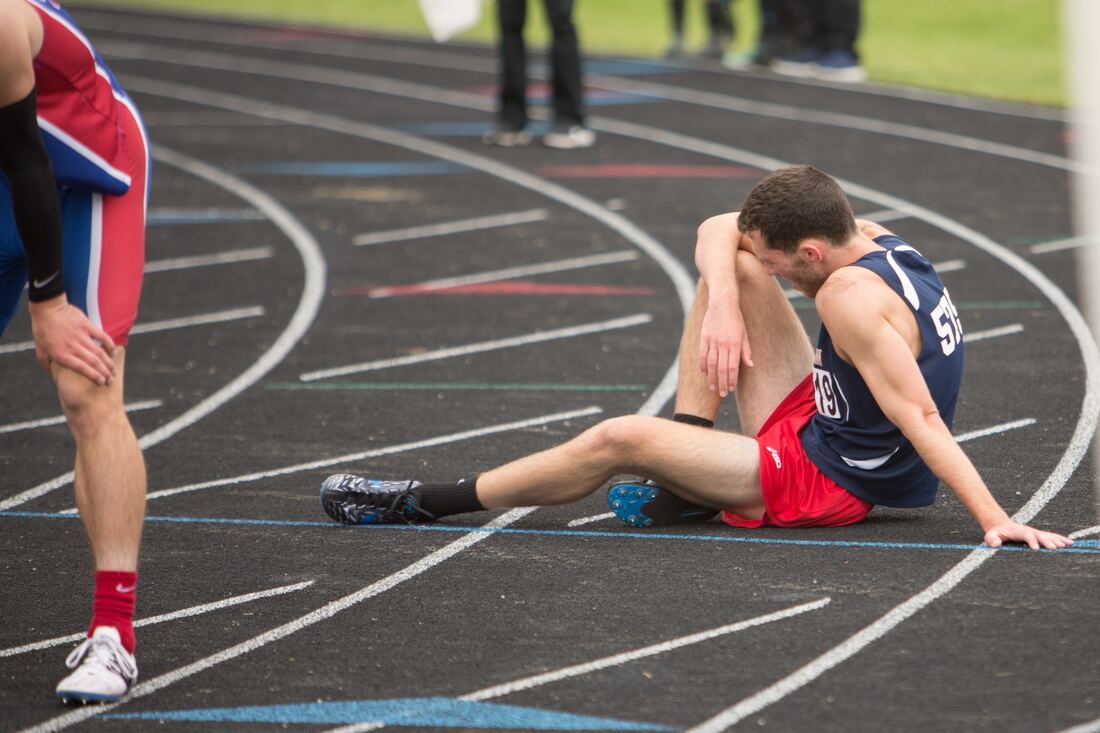
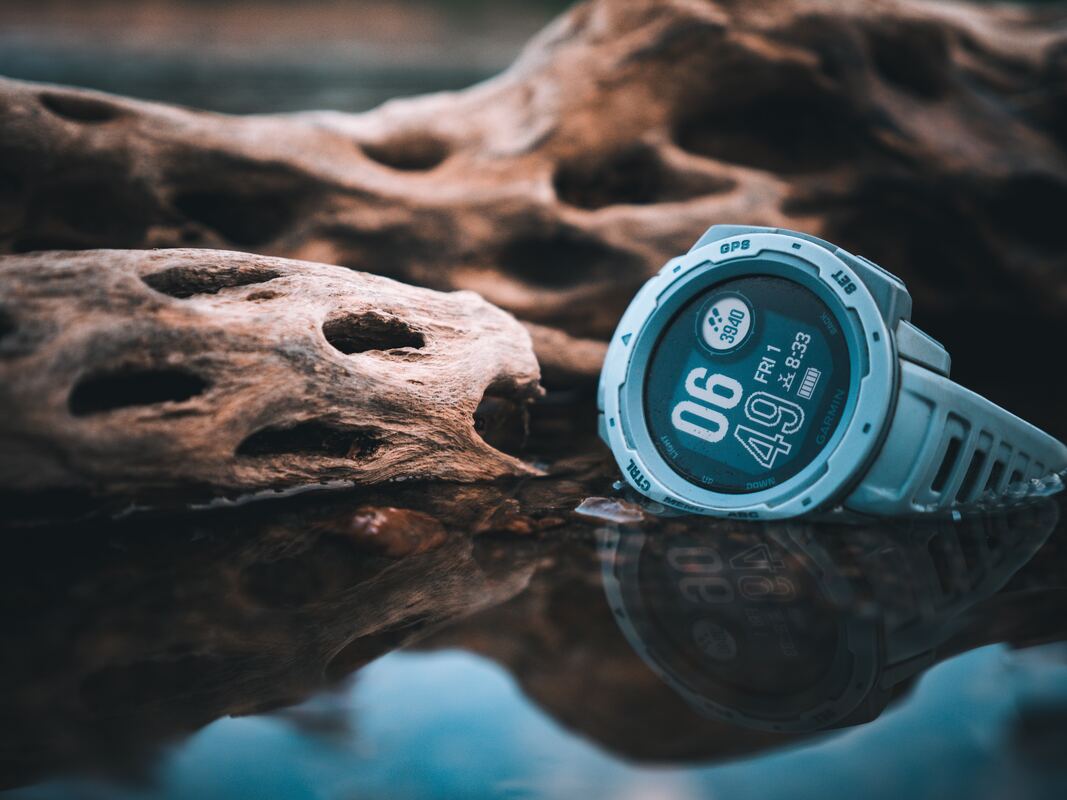
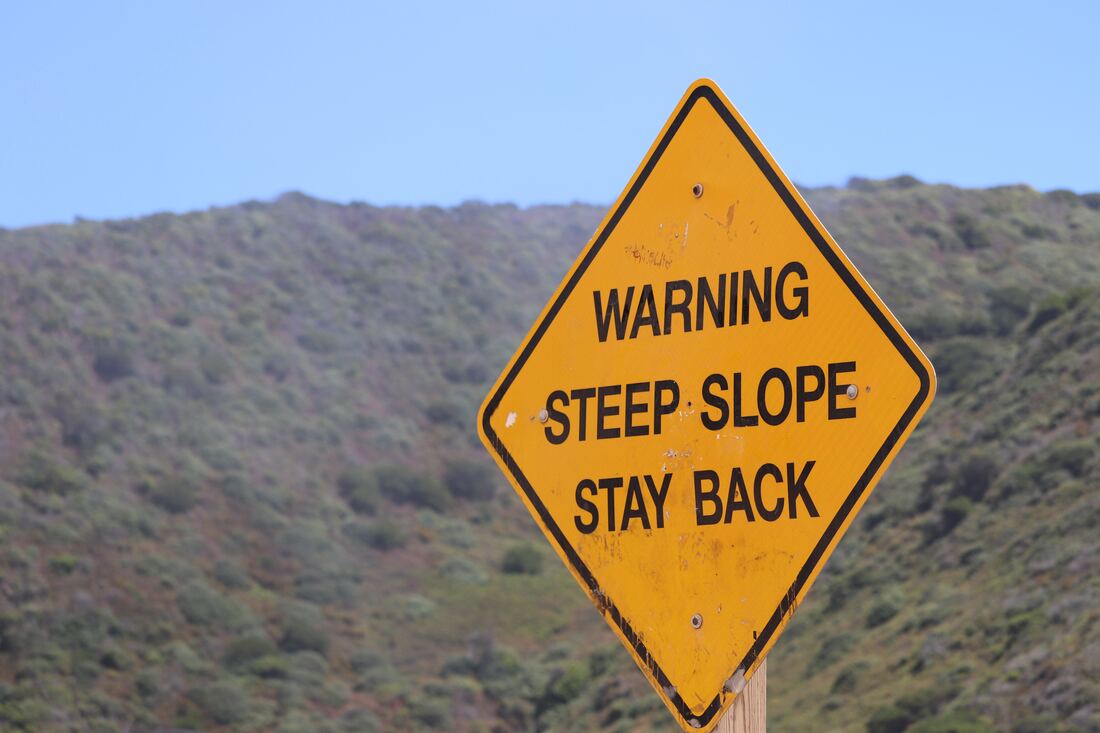
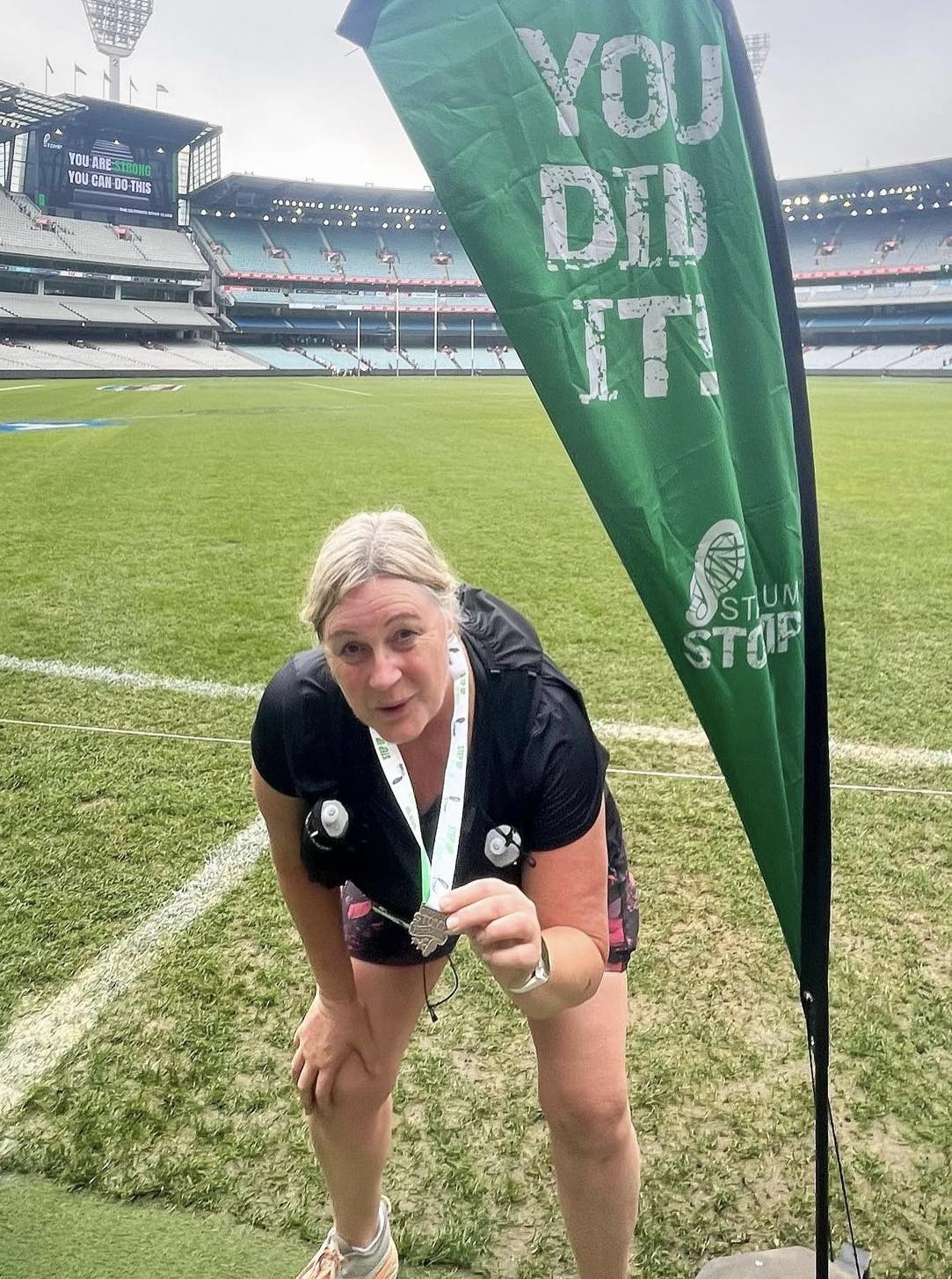
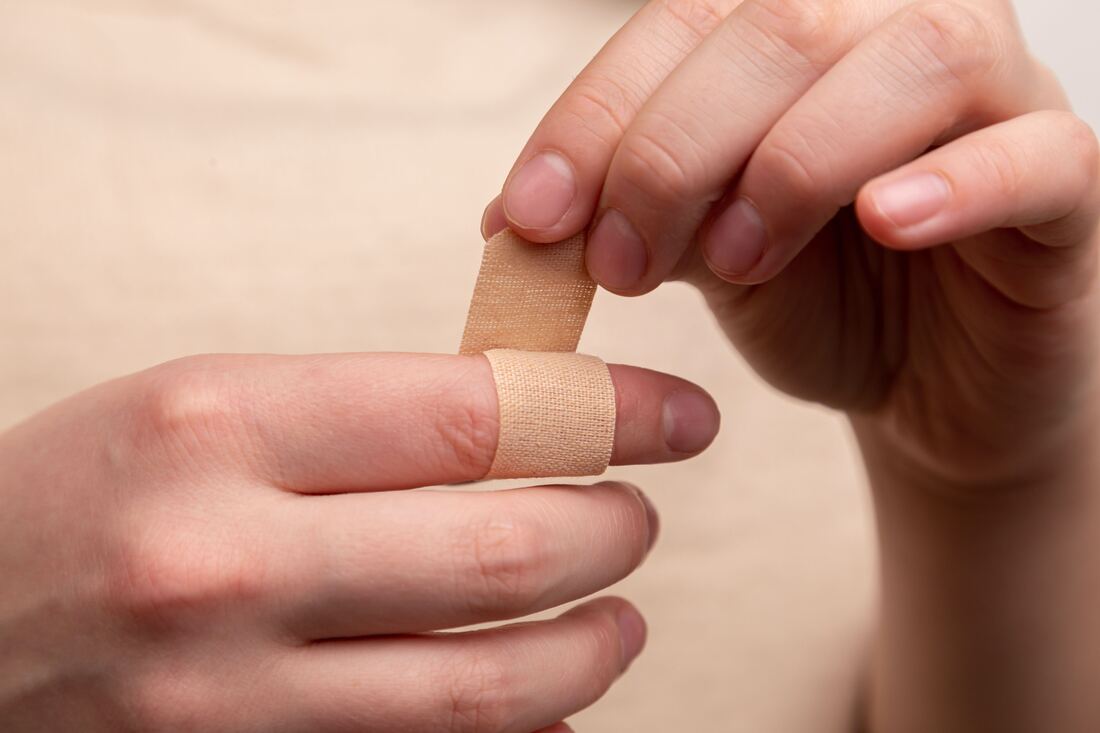
 RSS Feed
RSS Feed
